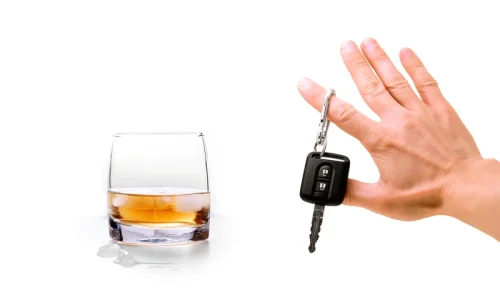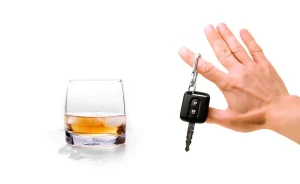Of course, digestive trouble is a leading symptom of many health conditions, so you’ll want to consult your doc before diagnosing yourself with, say, a tequila allergy. But, if it happens after drinking, without any other weird lifestyle or dietary changes, there’s a high probability that the symptoms are linked to those wine spritzers. You’ll have those same symptoms and a more intense reaction, wheezing, difficulty swallowing, low blood pressure, and heart palpitations, he says.
These reactions may cause inflammation of the skin, throat and airways, leading to difficulty breathing. Finally, sulfite-induced reactions occur when an individual is sensitive to the sulfur dioxide used during wine production as a preservative. Alcohol consumption can lead to a stuffy nose due to the effect it has on your body. Alcohol is metabolized by enzymes in your liver, which convert ethanol into acetaldehyde.
Is there a way to differentiate between alcohol-induced sneezing and allergic rhinitis?
Alcohol dramatically impacts the quality and quantity of rest you get, further contributing to hangover symptoms. Alcohol consumption may also stimulate the trigeminal nerve, which is responsible for transmitting sensory information from the face to the brain. This stimulation could lead to sneezing, particularly in individuals who have a hypersensitive trigeminal nerve. Sulfites have been used as preservatives since Roman times to preserve food flavour and colour, inhibit bacterial growth, and reduce food spoilage. Sulfites are sulfur compounds that occur naturally in the hops used to make beer. They are also added to beer as preservatives to prevent the growth of bacteria that can turn the alcohol to vinegar.
Why do i sneeze after drinking alcohol?
In addition, beer is often brewed with hops, comprising a compound called lupulin. When you drink alcohol, it’s absorbed into your bloodstream and quickly travels to your brain. One is that alcohol dilates blood vessels in the nose, which can cause irritation and lead to sneezing. Additionally, some people may experience swelling of the lips, tongue and throat.
- A doctor will be able to determine the cause of your symptoms and provide appropriate medical treatment.
- If drinking alcohol is unavoidable, try to limit your intake of low-alcohol beverages such as beer or wine.
- There is a significant overlap between anxiety, alcohol misuse, and alcohol use disorder.
- There is no evidence suggesting that age or gender has a significant influence on alcohol-induced sneezing.
- One theory suggests that alcohol-induced sneezing may be related to nasal congestion.
Another theory proposes that alcohol’s dehydrating effect can dry out the nasal passages, leading to irritation and sneezing. While alcohol content does not directly cause sneezing, it can contribute to nasal congestion or irritation, potentially triggering sneezing in some individuals. Yes, individuals with pre-existing allergies or sensitivities to certain substances may be more prone to sneezing after drinking alcohol. A few alcohols are less likely to trigger symptoms in people with alcohol intolerance. However, if you have alcohol intolerance, you must talk to your doctor about which alcohols are best for you to drink.
Dilated blood vessels can cause inflammation and swelling in the nasal passages. In some people, drinking alcohol may also trigger an allergic reaction, which can cause sneezing and other symptoms. Research shows that around 8% of people experience symptoms like nasal congestion, flushed skin, or even headaches while drinking wine. If any of this sounds familiar to you, you might be sensitive to one of wine’s many components. The good news is that once you identify the triggers, there are ways to reduce or even prevent these reactions, without having to ditch wine altogether. This will help to soothe the mucous membranes in your nose and prevent them from swelling and triggering a sneeze.
Can drinking alcohol worsen existing nasal conditions like allergies or rhinitis?
Alcohol intolerance is a temporary, but pretty uncomfortable, reaction to alcohol — with nasal congestion and flushed skin being the two most common side effects. It happens if your ALDH2 enzymes (remember those?) aren’t particularly effective at their job, or if your body just doesn’t make enough ALDH2 enzyme in the first place. If you’re looking for a way to prevent sneezing when you drink, try making your cocktails with fresh fruit juices instead of using pre-made mixes. This will help reduce the number of histamines in your drink and make it less likely to trigger a sneeze. Some people are more sensitive to histamine than others – if you’re prone to allergies or have a histamine intolerance, the histamine content of wine might be the cause of these symptoms.
Could allergies play a role in alcohol-induced sneezing?
For example, Italian winemaker Peri Bigogno produces wines with a certified histamine content under 0.5 mg/L. We all know wine comes with its fair share of effects, some desirable and others less so! Now, I find myself experiencing the same reaction, so let’s explore why it happens and what you can do about it. When people have anxiety, drinking alcohol might seem like an effective way to cope.
Why drinking alcohol will make your hay fever worse – Cosmopolitan UK
Symptoms may occur within seconds or minutes of alcohol exposure and could trigger after exposure to even tiny amounts of the allergen. Anaphylaxis is a life threatening condition that involves a series of symptoms, such as a rash, low pulse, and shock. Aldehyde dehydrogenase (ALDH2) is an enzyme that your body uses to digest alcohol. If you’re starting a new medication, it’s always a good idea to talk with your healthcare provider or pharmacist about how your medication can interact with alcohol. Other molds, yeasts, proteins, and ingredients used for wine fining can also be allergens.
Red wine should be avoided if you have a sinus condition or are prone to developing them. The sulfur compounds in red wine can irritate your nasal passages, resulting in inflammation and swelling that can lead to sinus issues. Additionally, the phenolic compounds found in red wine can cause further irritation and worsen the condition. If you do choose to consume red wine, make sure to do so in moderation and avoid consuming too much.
Another possibility is that alcohol can induce an allergic reaction in some individuals. Certain components of alcoholic beverages, such as histamines and sulfites, can act as triggers for allergy-like symptoms, including sneezing. But even with our guide on how to get rid of a hangover, you may want to dig deeper beyond the simple remedies and solutions to determine whether there is a real cause for concern here.
If a person suspects they have an allergy, it’s important they be evaluated by a specialist. Dec. 24, 2012— — Kristin Brown loved to drink – perhaps partied a little too much when she was in her 20s, but when she hit her 30s, alcohol suddenly hit her the wrong way. Finally, acetate is further broken down into water and carbon dioxide and, voila! The process starts with an enzyme in your liver, called alcohol dehydrogenase (ADH), which converts ethanol into acetaldehyde. Quercetin is a plant pigment that has been shown to cause sneezing in some people. Each week, you’ll get an amazing recipe, a useful health tip, and an ingredient to jazz up your shopping basket!
However, if you notice an escalation in symptoms or the development of new respiratory issues, it is advisable to consult a medical professional. The temperature of the alcohol itself is not a significant factor in inducing sneezing. However, if an individual is sensitive to temperature changes in their nasal passages, it may contribute to sneezing. As it turns out, understanding your alcohol-induced stuffy nose starts with understanding how your body processes alcohol — or tries to, anyway. If sneezing impacts your quality of life, talk to your doctor about ways to reduce or eliminate the can alcohol make you sneeze problem.
Red wines, for example, tend to have higher levels of histamines than white wine or beer. If you find that drinking these beverages triggers an allergic reaction, then it’s important to limit your intake and switch to lower-histamine alternatives. Another helpful tip is to opt for histamine-low foods, such as fresh fruits and vegetables, or fermented products like yogurt or kefir. These foods can help your body break down the histamines more effectively, reducing the potential for an allergic reaction.
The symptoms of a beer allergy are similar to those of other allergic reactions and can include abdominal pain, bloating, chest tightness, hives, wheezing, and chest pain. These symptoms can occur almost immediately after consuming beer and should be considered severe and potentially life-threatening. Alcohol intolerance can also cause a rapid onset of a throbbing headache or migraine. Nausea and vomiting are common, with severe abdominal cramping and retching occurring soon after drinking. Additionally, individuals with alcohol intolerance may experience a rapid heartbeat, nasal stuffiness, and congestion. While specific ingredients in alcoholic beverages may cause allergic reactions, there is no known comprehensive list that guarantees the prevention of alcohol-induced sneezing.
These chemicals cause inflammation in the mucous membranes of your nose and sinuses, leading to congestion and a stuffy feeling. Additionally, when you consume alcoholic beverages, your blood vessels widen and cause more blood to flow to the nasal tissues, leading to additional swelling. What’s more concerning, however, is that some medications can lead to uncomfortable (even dangerous) side effects when combined with alcohol.









